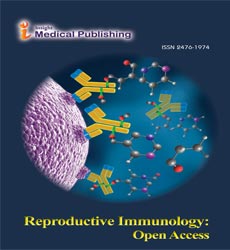Abstract
Subcutaneous Immunoglobulin Therapy in a Woman with Spontaneous Pregnancy Loss and Multiple Sclerosis
Background: Off-label use of intravenous immunoglobulin has been reported for the treatment of recurrent spontaneous pregnancy loss and selected cases of multiple sclerosis. However, the use of subcutaneous immunoglobulin has not been reported in these settings. Methods and results: We report on tolerability and clinical efficacy of subcutaneous immunoglobulin therapy in a woman with the unusual association of IgG4 subclass deficiency, C4 hypocomplementemia, localized scleroderma, unexplained spontaneous pregnancy loss and multiple sclerosis. Weekly infusions of subcutaneous immunoglobulin were self-administered at home (6 grams/week, Hizentra®) during the next pregnancy after abortion. Interferon beta-1a for the treatment of relapsing-remitting multiple sclerosis was stopped before pregnancy. During pregnancy only subcutaneous immunoglobulin was administered. The patient was found to have 4% of CD3+CD16/CD56+ (Natural Killer (NK) /T cells). The patient delivered a healthy baby (Apgar score 9 at 5 minutes) at 37 weeks gestation. During pregnancy and 3 months follow-up after delivery no multiple sclerosis flare-ups were observed. NK-T cell percentages remained stable. Conclusions: Our observation indicates that subcutaneous immunoglobulin therapy was well tolerated and efficacious in a selected case of unexplained abortion and multiple sclerosis.
Author(s):
Javier Carbone, Elizabeth Sarmiento and Eduardo Fernandez-Cruz
Abstract | Full-Text | PDF
Share this

Google scholar citation report
Citations : 237
Reproductive Immunology: Open Access received 237 citations as per google scholar report
Abstracted/Indexed in
- Google Scholar
- Sherpa Romeo
- China National Knowledge Infrastructure (CNKI)
- Secret Search Engine Labs
Open Access Journals
- Aquaculture & Veterinary Science
- Chemistry & Chemical Sciences
- Clinical Sciences
- Engineering
- General Science
- Genetics & Molecular Biology
- Health Care & Nursing
- Immunology & Microbiology
- Materials Science
- Mathematics & Physics
- Medical Sciences
- Neurology & Psychiatry
- Oncology & Cancer Science
- Pharmaceutical Sciences

